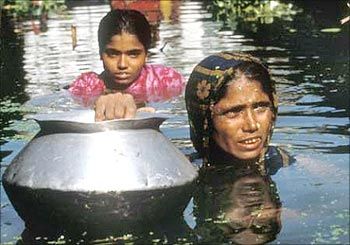Several climate/energy technology partnerships have been initiated across the world, many emerging within the past decade, says Arunabha Ghosh.
 Technology is widely recognised as one of the most powerful tools for combating climate change. Technology transfer (and associated financing) has been a key demand during two decades of climate negotiations, including for the upcoming negotiations in Paris.
Technology is widely recognised as one of the most powerful tools for combating climate change. Technology transfer (and associated financing) has been a key demand during two decades of climate negotiations, including for the upcoming negotiations in Paris.
But there is still limited understanding of what works and what does not.
Several climate/energy technology partnerships have been initiated across the world, many emerging within the past decade.
Some serve as discussion forums, some focus on policy, some have regional or city-level mandates, and some target specific technologies.
My colleagues and I reviewed more than 30 initiatives and found that very few had been designed to extend beyond sharing knowledge and some preliminary R&D activities.
Even fewer had enlarged functional focus on actual transfer of equipment, joint production, or extensive deployment mandates.
Mostly, we have been hanging our hopes on talk shops.
Three obstacles have impeded partnerships: lack of appropriate financing, intellectual property (IP) restrictions, and insufficient or underutilised capacity.
For existing technologies, unless appropriate financing is available, deployment at scale is difficult.
Entrepreneurs need upfront financing to cover capital costs of clean energy technologies, working capital to hold inventories, and funds to pay IP licence fees.
Business models, such as rural micro-grids, could be viable but, being small in scale, they often fail to attract the attention of large institutional investors.
India's Domestic Efficient Lighting Programme, by scaling up public procurement and distribution of LED bulbs in 100 cities, will slash costs by 60 per cent.
Secondly, to develop new technologies, innovators need clear market signals.
Public policy intervention - whether by setting a carbon price, direct R&D investment, or guaranteeing a minimum price for emerging technologies - is needed to stimulate private investment.
The US Department of Energy's SunShot Initiative was designed with this purpose, resulting in steep falls in utility-scale solar prices.
Another approach is to develop partnerships wherein contributing firms/research institutions retain their original IP but share returns on new technologies.
Global partnerships in agriculture, genetics, particle physics and nuclear fusion have adopted similar approaches of co-development and co-ownership of IP, as do the India-US Joint Clean Energy R&D Centers on solar, energy efficiency and biofuels.
Thirdly, to be inclusive and effective, partnerships should contribute to building capacity in weaker partner countries to ensure that deployment is widespread, not captured by a few, as has occurred in the past. Members need not only have to contribute in hard currency.
In-kind contributions of research staff, facilities, or land for demonstration projects could be ways in which the contributions of all members are recognised and duly rewarded.
These lessons suggest ways to design two new initiatives, in which India could be a leading partner.
The first would be a multi-country partnership on energy access and decentralised energy. Decentralised energy entrepreneurs are combining innovations in technology and business models (India, alone, has 400 firms); Bangladesh has deployed millions of solar home systems; innovative mobile payment mechanisms are in use in East Africa; in Southeast Asia opportunities exist to use agricultural waste in cogeneration systems.
There is also extensive experience in developed countries. An Energy Access Partnership Fund could increase access to working capital for far-flung small entrepreneurs, pay for licencing fees, underwrite experiments with business models, and, by aggregating projects,establish links to larger investors.
Initially capitalised by public finance, the fund could attract institutional investment through sovereign guaranteed green bonds.
By focusing on deployment, the Fund would support skills training in rural communities to build, service and maintain decentralised energy systems.
The partnership would also support centres to test and certify products, and create model regulatory codes.
A second idea is a multi-country partnership on energy storage and grid balancing, necessary to integrate large amounts of renewable energy into the grid, in addition to applications in personal and public transportation and off-grid systems.
Research and manufacturing are underway in China, France, Germany, Japan and the United States, among others.
India could get 30 per cent electricity generation from non-fossil sources by 2030, an opportunity for India to become a global laboratory for storage R&D, testing and commercialisation.
Advance market commitments to procure storage technologies could give the demand fillip needed to drive private R&D investment.
Innovative financing, such as top-up instruments or tradable options, could reduce the public finance outlay now or in future.
The partnership could support disaggregated market assessments; establish pilots in developing countries; agree on co-ownership of new storage technology licences; identify possible joint ventures across the supply chain;and develop policy frameworks to incorporate these technologies.
At the United Nations last month, Prime Minister Modi called for a "global public partnership to harness technology, innovation and finance to put affordable clean and renewable energy within the reach of all." India's Intended Nationally Determined Contribution proposed "global collaborative research [on] clean coal…, energy management and storage systems for renewable energy."
India also aims to host a global solar alliance, the International Agency for Solar Policy & Application.
The proposed partnerships- on access and storage - neatly embed into these ideas, have wide-ranging functions and improved design. If Paris triggered effective climate technology partnerships, it would be a transformative break from the past.
Arunabha Ghosh is chief executive, Council on Energy, Environment and Water









